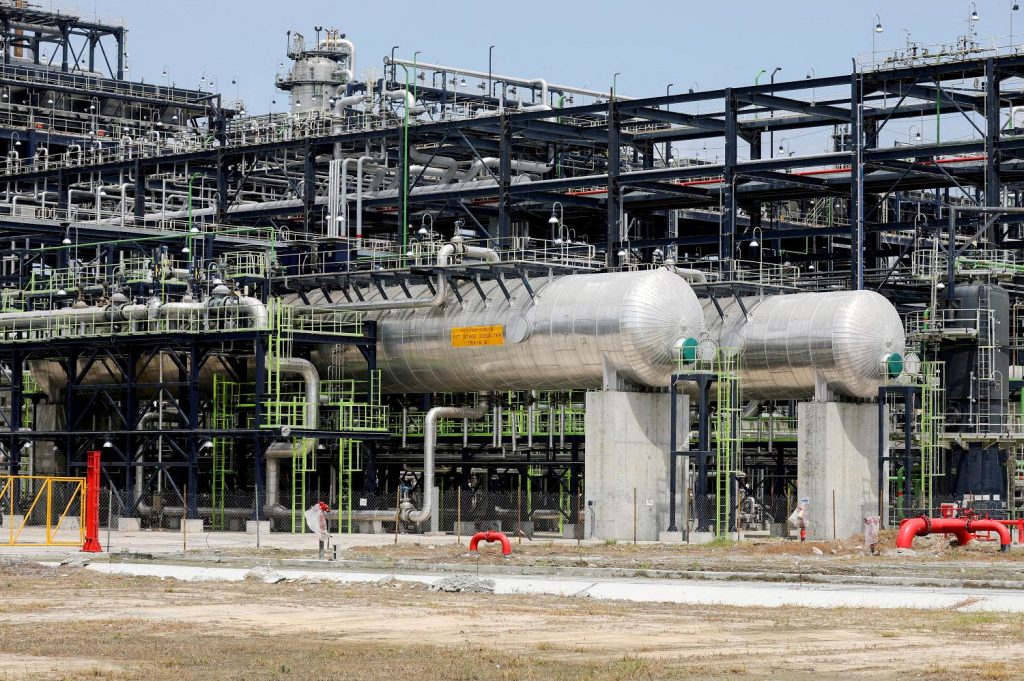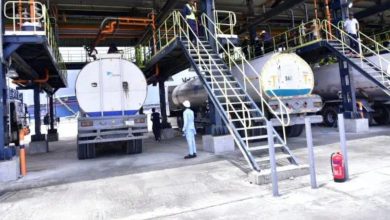Dangote Refinery to Halt Crude Oil Imports by December, Shift to Full Nigerian Supply
Dangote Refinery targets full switch to Nigerian crude by December, ending reliance on imports.
Management says over half of crude now sourced locally as contracts with foreign suppliers expire.
The Dangote Petroleum Refinery plans to completely stop importing crude oil by December 2025, transitioning fully to using domestically produced Nigerian crude, according to a report by Bloomberg.

Located in Lagos, the $20 billion refinery currently processes around 550,000 barrels per day (bpd) and is Africa’s largest oil refining facility. The plant is expected to reach its full operational capacity of 650,000 bpd soon. As the refinery scales up, its management says the reliance on foreign crude will be phased out in favour of local supply.
Devakumar Edwin, Vice President at Dangote Industries Limited and head of the refinery’s operations, disclosed that the company has already started receiving more domestic crude. He said that in June, about 53 percent of the crude processed by the refinery came from local producers, while the remaining 47 percent was imported mostly from the United States.
Edwin explained that existing contracts with international crude suppliers are nearing expiration, and the company intends not to renew them. “We expect some of the long-term contracts will expire,” he said. “Personally, and as a company, we expect that before the end of the year, we can transition 100 percent to local crude.”
Bloomberg also reported that in July and August, the refinery is expected to receive five crude oil cargoes each month from the Nigerian National Petroleum Company Limited (NNPC), with each cargo containing nearly one million barrels.
Aliko Dangote, the refinery’s founder, had previously acknowledged that the facility relied significantly on imported crude, especially from the U.S., despite efforts to source locally through the naira-for-crude policy introduced by the Nigerian government. The goal was to reduce the need for foreign currency and promote local transactions.
However, the effort to secure consistent domestic supply has faced several hurdles. According to the Nigerian Upstream Petroleum Regulatory Commission (NUPRC), oil producers have protested government directives mandating crude allocations to local refineries under the Domestic Crude Supply Obligations (DCSO). Many producers remain committed to export contracts that offer more favourable pricing.
Additionally, Nigeria’s local crude supply has been constrained by ongoing issues such as pipeline vandalism, oil theft, and attacks on infrastructure in the Niger Delta. These challenges have affected output and the reliability of domestic supply, forcing Dangote and other refineries to initially depend on imports.
Edwin noted that while the company had imported oil from Brazil, Angola, Ghana, and Equatorial Guinea in addition to the U.S., ongoing collaboration with the government and local oil traders is now bearing fruit. “Improved relations between the refinery, local oil traders and the government will result in a steady supply of Nigerian crude,” he said.
The transition to full local sourcing aligns with the original purpose of building the refinery. Dangote had long criticized the practice of exporting Nigeria’s crude only to re-import refined products at much higher prices. His vision was to retain value within the country, reduce reliance on foreign fuels, and turn Nigeria into a net exporter of refined products.
Already, the refinery’s gradual operational ramp-up is starting to change the dynamics. Nigeria, which has historically been a major importer of petroleum products, is now emerging as a net exporter even as the facility still operates below full capacity.
If the planned shift to 100 percent Nigerian crude materializes by December, it will mark a major milestone for Nigeria’s energy industry. Not only would it strengthen energy security, but it would also help conserve foreign reserves, create jobs, and improve the balance of trade.
The months ahead will be crucial in determining whether domestic crude producers can meet the refinery’s full demand, and whether the necessary infrastructure and political cooperation can sustain a steady local supply chain.



